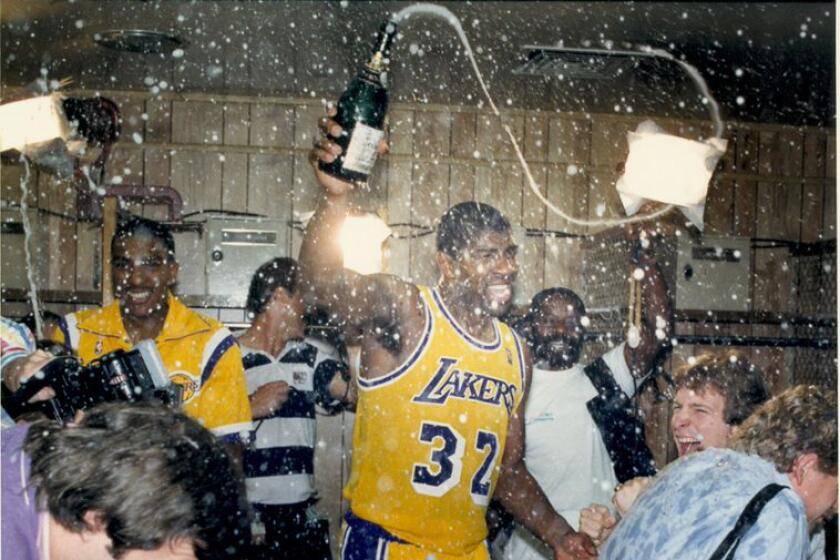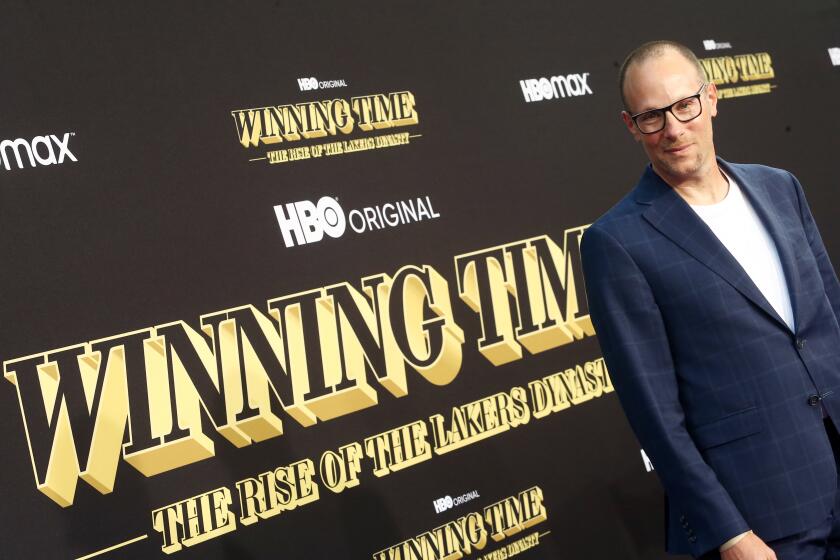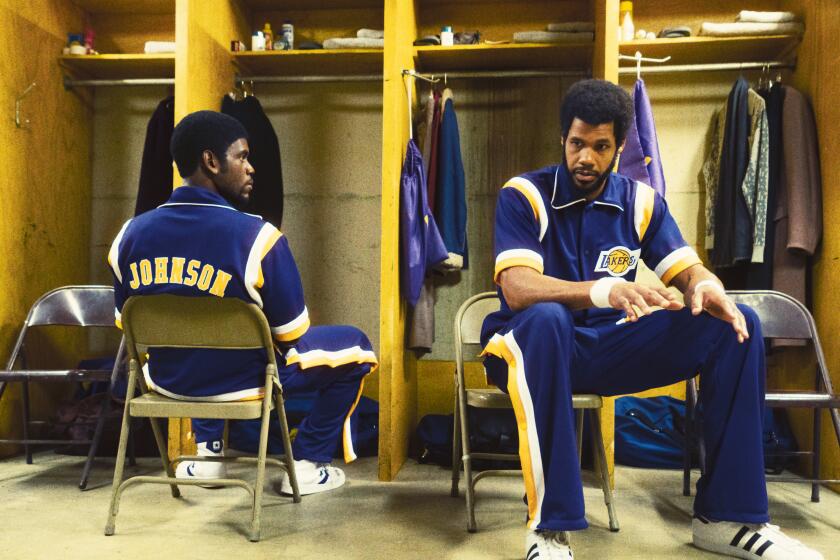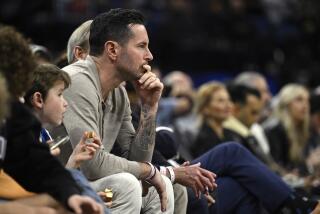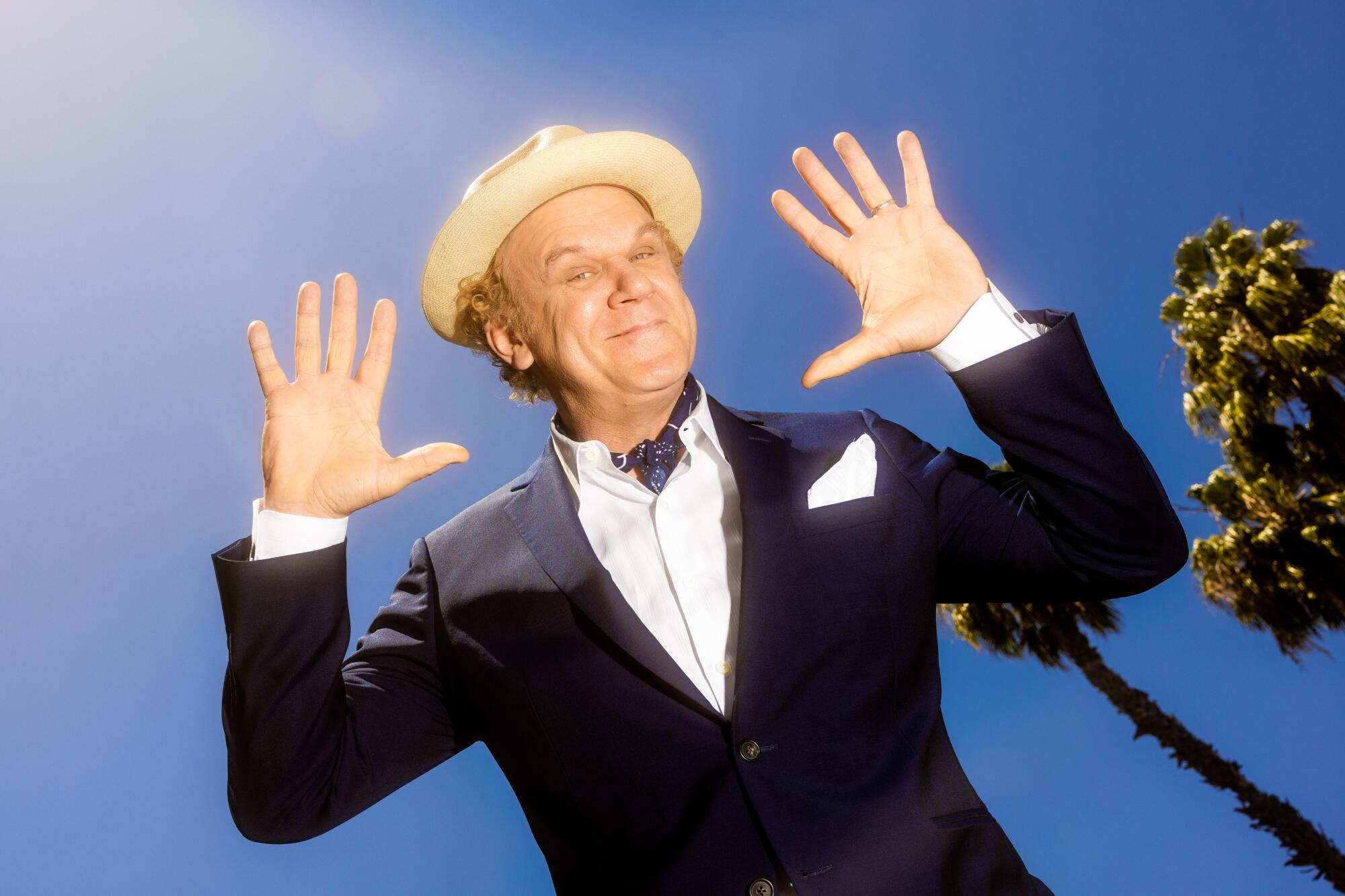
John C. Reilly does not like the Westside. He felt this aversion deep in his bones from the moment he moved to Los Angeles from Chicago some 30-odd years ago. Venturing into Santa Monica one day, Reilly took inventory of the ostentatious wealth surrounding him and felt completely out of place. It was the cliche version of L.A. He didn’t understand it and had absolutely no desire to even try to understand it. He fled back to his place near the Hollywood Bowl and moved to Silver Lake shortly afterward, and finally moving yet again.
For a transplanted Angeleno, this geographical antipathy can pose the occasional problem. The other day, Reilly found himself in Marina del Rey. He’s interested in sailing (yes, we’ll get to that “Step Brothers” music video in a moment), and to pursue this passion, you need an ocean. (The paddle boats in Echo Park can only go so far.) Reilly has come to love sailing, having taken it up during the pandemic. But the problem is obvious: Once he’s back at the marina, he has to fight the traffic home.
Behind HBO’s ‘Winning Time’: The real story of Magic Johnson, Jerry Buss and the 1980s Lakers, and how they changed the NBA and America.
“I get to my car, and it’s like, ‘Wow, I feel so anxious. Why do I feel so anxious?’” Reilly says. “Then I remember: It’s the Westside. I don’t belong here.”
“John is a Chicago guy through and through,” says filmmaker Adam McKay, a longtime friend and collaborator. “It’s just too risky for him to be a Westsider. He might bump into a member of the Eagles or have to drive in a convertible with sunglasses on. John would rather die than have that happen.”
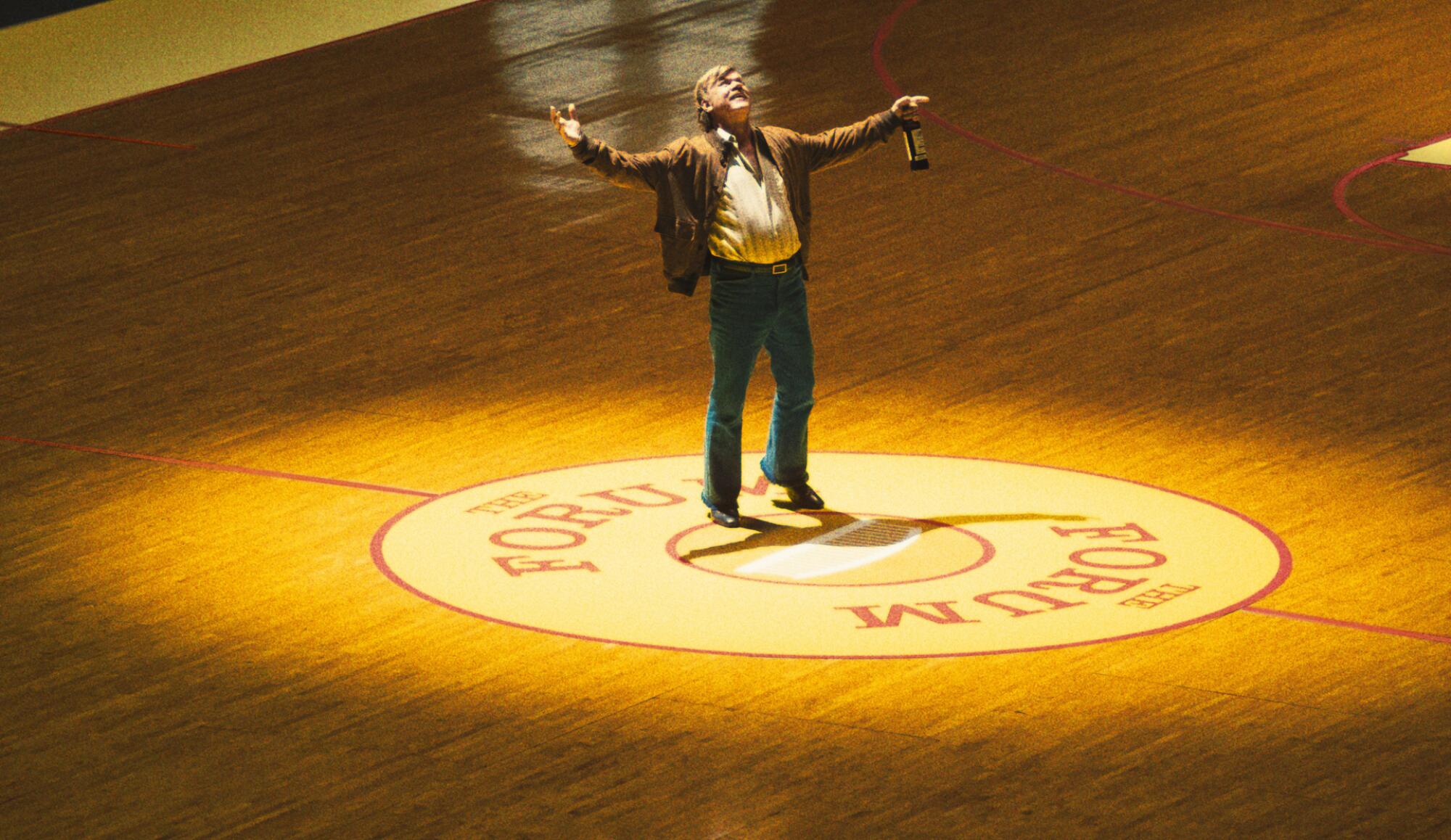
Reilly and I are having lunch in South Pasadena, far removed from life in the fast lane. Truth be told, since his portrayal of the late, legendary Los Angeles Lakers owner Jerry Buss began airing weekly on HBO’s “Winning Time: The Rise of the Lakers Dynasty” (which McKay co-produced), Reilly really doesn’t mind being anywhere in L.A. — even (shudder) the Westside. Often in the last weeks, he’ll be out walking somewhere, and locals will spot him and shout, “We love you, Dr. Buss!”
“Which, to me, is more fun than hearing ‘Boats ‘N Hoes,’” Reilly says, referring to the “Step Brothers” music video in which he and Will Ferrell sang about the joys of, among other things, consuming nachos and Lemonheads on the high seas. “Especially when you’re out with your family. Some guy screaming ‘Boats ‘N Hoes’” — Reilly pauses, letting out a dramatic sigh. “‘You just killed the vibe, dude.’”
Jeff Pearlman’s book on the Showtime era Lakers is the basis of a TV series on HBO, but the show “Winning Time” follows a different path from the book.
To play Buss, the charming narcissist with the dramatically unbuttoned shirts and Aquanet-aided combover who bought the Lakers in 1979 and helped transform the team — and the NBA — by melding sport, celebrity and spectacle, Reilly mined his own insecurities and dogged determination.
“I’ve never meditated on a character for this length of time,” says Reilly, who’s gearing up for a second “Winning Time” season that will begin filming in late summer and continue through spring 2023. “What I connected with immediately was his unwillingness to listen to naysayers. I’m really like that. Ask my wife. My motto is ‘Worry is negative prayer.’ If you’re worrying, then you’re praying for the wrong thing to happen.”
“Winning Time” itself was something of an answered prayer. McKay asked Reilly to join the cast after Michael Shannon departed while filming the show’s pilot episode. Shannon wasn’t comfortable with scenes that required Buss to break the fourth wall and address the camera directly. Having worked with Reilly on “Step Brothers” and “Talladega Nights: The Ballad of Ricky Bobby,” McKay knew Reilly wouldn’t have any such issues. In fact, the series’ first scene spotlights Reilly talking to the audience. (“His versatility and range are beyond belief,” McKay enthuses.)
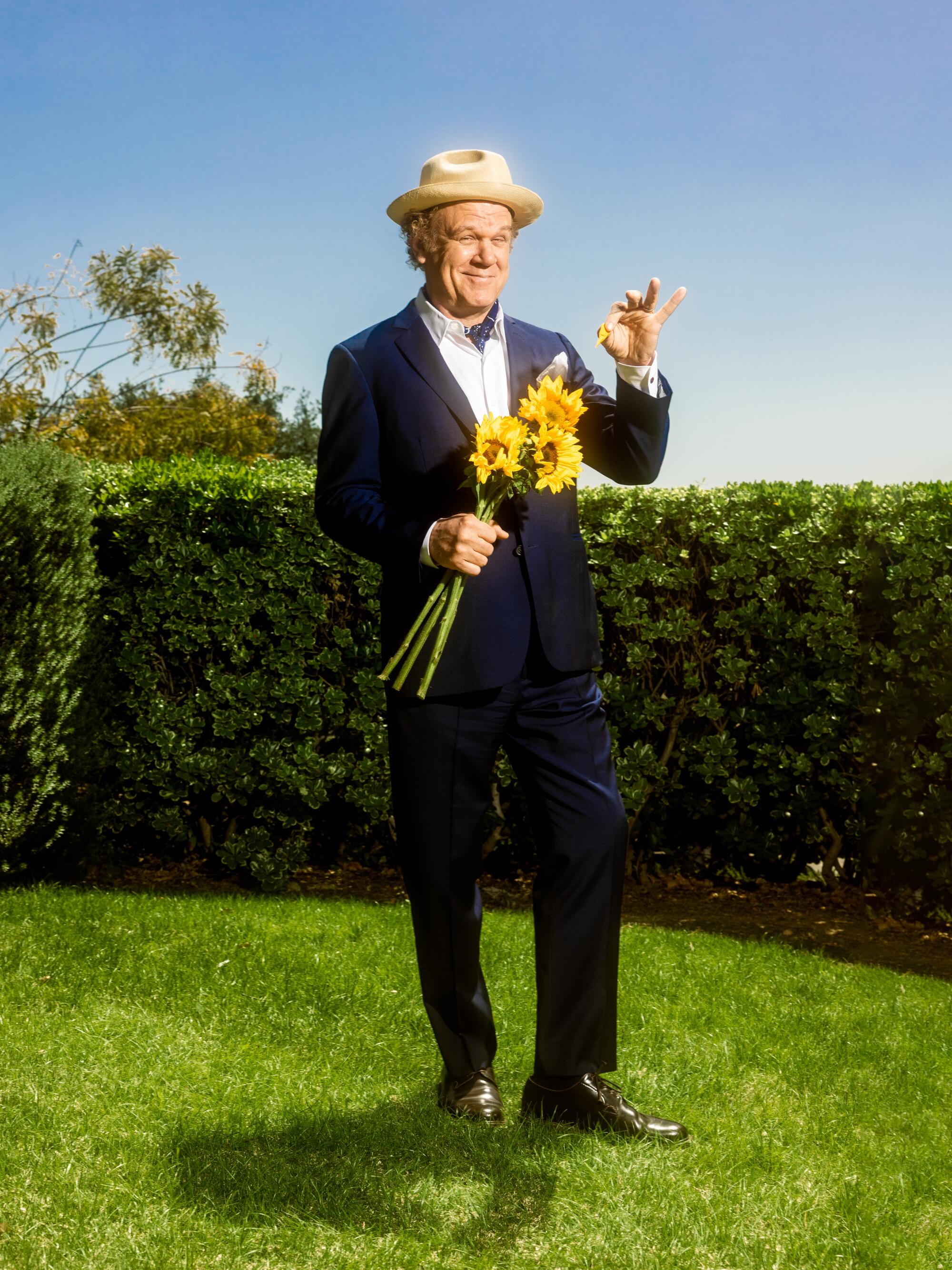
When McKay called, Reilly was unemployed, looking for work and finding nothing of interest. He has been there before. Reilly remembers landing a principal role in his first movie, Brian De Palma’s harrowing drama “Casualties of War,” and how it was a huge thing for his family in Chicago: “Holy cow! John’s going off to make a movie in Thailand!” Reilly earned great reviews when the film was released in 1989 and then, he recalls, “That was it. It was over. I’m unemployed again. And I thought, ‘This does not feel good.’”
Reilly hated the uncertainty of not knowing when the next job might come — or if there’d be another gig at all. He remembers a conversation he had with his dad, a patrician figure who, when he gave you eye contact, you knew he had something important to say. Reilly told him he wasn’t sure if he was cut out for the roller-coaster life of an actor. Maybe he’d go back to carpentry or something else that was steady.
Everything you need to know about the true story of the Showtime Lakers, all in one place.
“And he turned to me and said, ‘We have enough carpenters in the family. Stick with what you’re doing,’” Reilly says. “And I was like, ‘Got it.’ He didn’t have to tell me twice.”
Reilly went on to work with such acclaimed filmmakers as Paul Thomas Anderson (“Hard Eight,” “Boogie Nights,” “Magnolia”) and Martin Scorsese (“Gangs of New York,” “The Aviator”), earn an Oscar nomination for “Chicago” and voice the lead character in a Disney animated franchise series (“Wreck-It Ralph”). He has (mostly) made peace with the ups and downs of his job — “it keeps you in a humble place of gratitude” — adopting a blind faith that something great will eventually come his way. History is on his side.
Says Reilly: “When this [“Winning Time”] job came through, I was like, ‘This town is a g— casino. All you have to do is stay in the casino. Don’t leave. Just stay there and keep playing and eventually your number will come up.” He smiles. “And when it does, you’re like, ‘Incredible! It’s happened again!’”
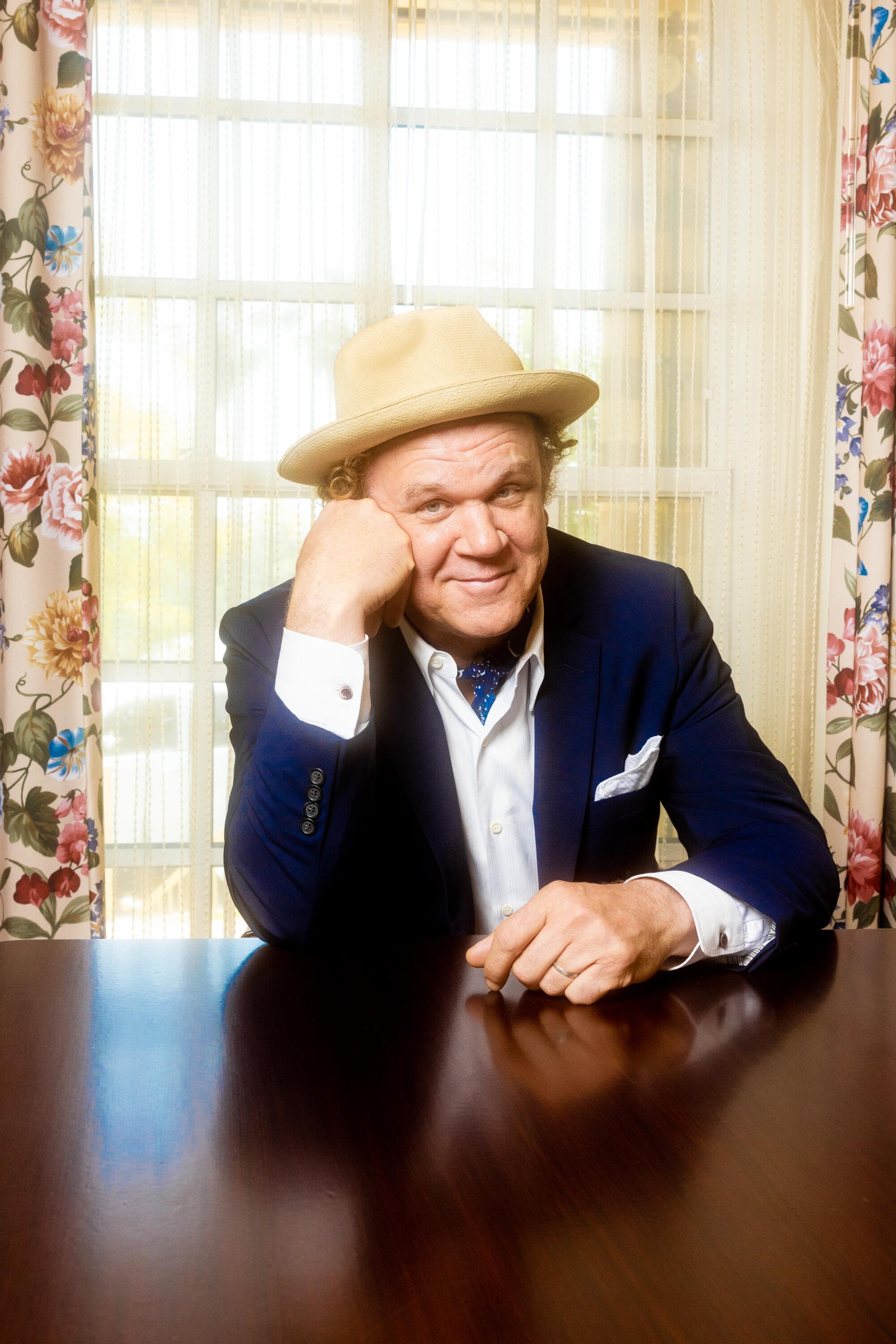
More to Read
From the Oscars to the Emmys.
Get the Envelope newsletter for exclusive awards season coverage, behind-the-scenes stories from the Envelope podcast and columnist Glenn Whipp’s must-read analysis.
You may occasionally receive promotional content from the Los Angeles Times.
